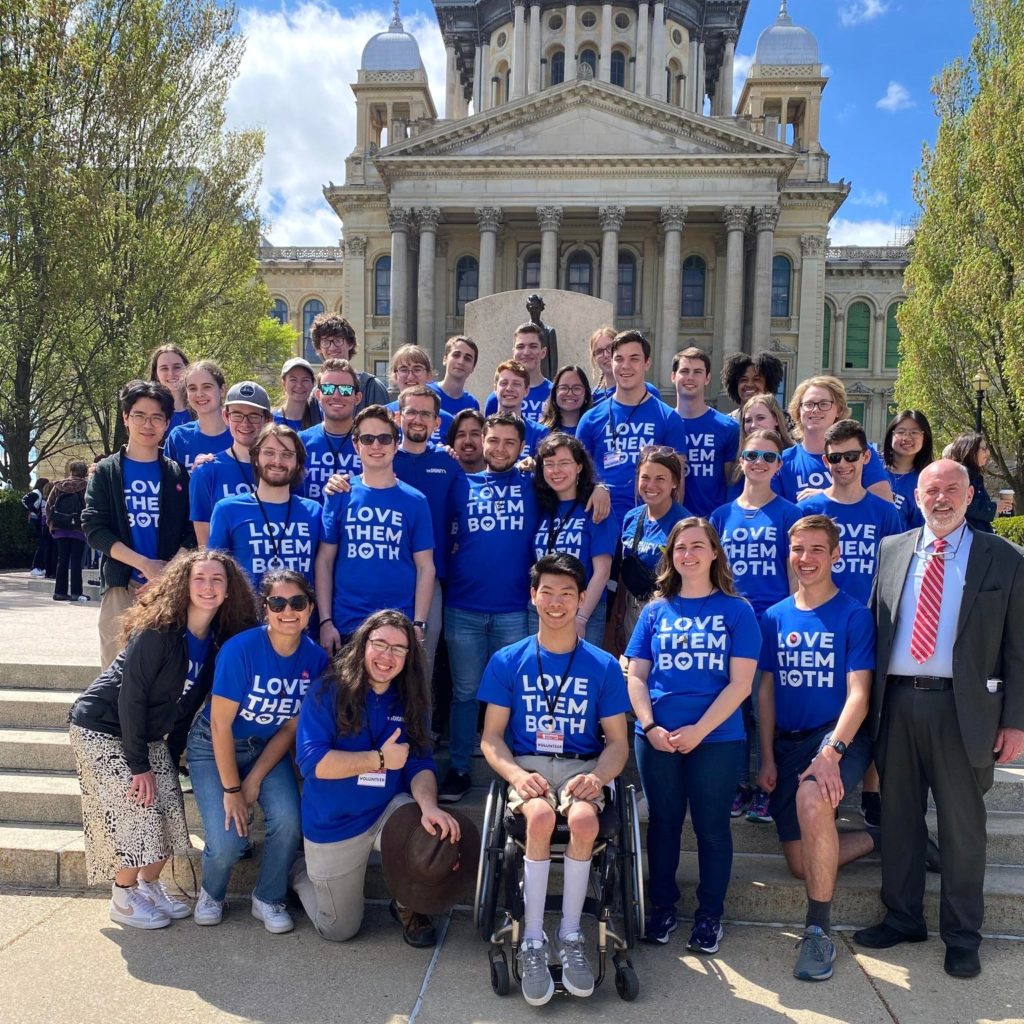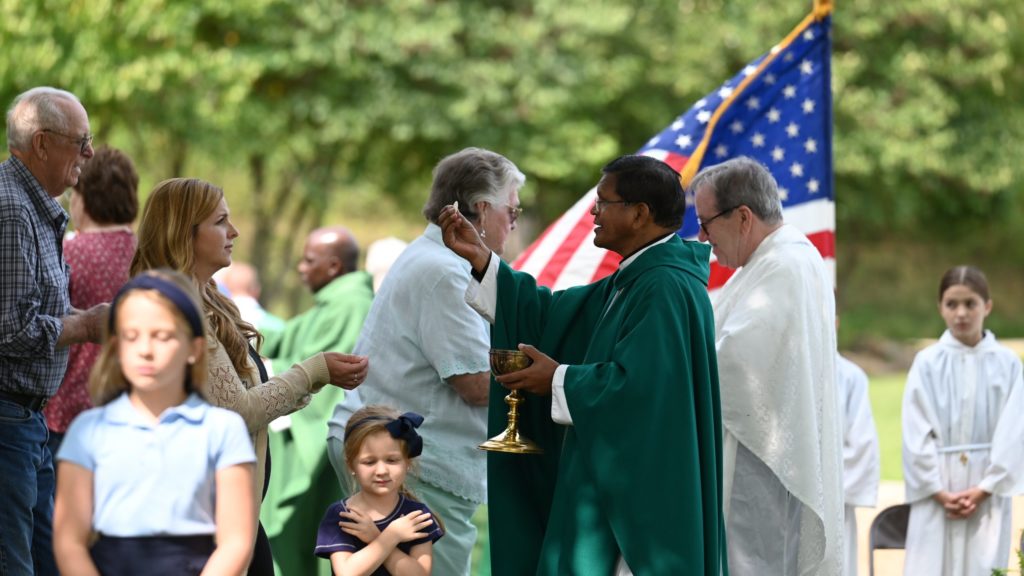Whoever wins the presidency on Nov. 5, this election marks a turning point for Catholics.
For the first time, neither major party has any semblance of a pro-life stance. Former President Donald Trump has moved to a “let the states decide” stance on the abortion license and on In Vitro Fertilization (IVF). Vice President Kamala Harris, with gleeful opportunism, puts abortion access at the center of her campaign.
How did we get here? For decades we have been gradually losing sight of the sanctity of human life. When we fail to honor the Creator, we dishonor ourselves.
Ven. Fulton Sheen was prescient. When did we take the wrong path? His answer was blunt: “We can pinpoint a date: 8:15 in the morning, the sixth of August, 1945. … When we flew an American plane over [Hiroshima] and dropped the atomic bomb on it we blotted out boundaries … even between the living and the dead, for the living who escaped the bomb were already half-dead.”
From that time, he added, it has been as if we said “ ‘we want no one limiting us.’ ”
So what should we expect going forward? Much depends on how we act at this critical juncture. It’s long been easy to argue that Catholics are “politically homeless.” But if we are homeless, shouldn’t we get to work building a home? To vote as we have, while holding our noses, is a dismal prospect. To speak colloquially, won’t it risk cutting off our noses to spite our faces?
There is also the advice to “choose the lesser of two evils.” That familiar expression needs unpacking. Sometimes, after all, neither of two evils is the lesser one. The core goods of human flourishing are incommensurable. But even if we can identify a greater and a lesser evil, we ought never choose evil. We dare not choose evil even if we suppose that by doing so we will bring about good. Our tradition, however, draws a careful distinction: We can choose to act for a good even if we foresee that doing so will have some further consequence that we deplore.

In any case, Pope Francis reminds us that, generally speaking, we should vote. Even if a single vote is (almost) never decisive in a national election, voting helps us to clarify why a candidate should win our support. In casting our ballots, we gain a civic mandate to explain to other people why we support the candidate that we do. We can introduce, as well, candidates that others might not be familiar with.
Pope Benedict XVI highlighted three non-negotiable principles for Catholic engagement in the public arena. Voting is, of course, the most common of these engagements. Each principle centers on the dignity of the person. They are, in his words:
- “the protection of life in all its stages”
- “the recognition and promotion of the natural structure of the family as a union between a man and a woman based on marriage”
- “the protection of the right of parents to educate their children.”
A candidate who violates any of these non-negotiating principles fails to meet a necessary condition for meriting a Catholic’s vote.
Pro-life Catholics are often accused of being single-issue voters. Abortion, the deliberate killing of a preborn human being in what nature provides as the safest of places, is the preeminent issue. But there are many other pressing issues. Racism is one. Welcoming those in great need is another. So, too, is respect for the earth we share. We cannot accept a candidate who espouses racism or stifles the cries of the poor. Nor can we accept a candidate who would treat the resources of the planet simply in terms of narrow economic needs.
There is a further matter for disqualification: a candidate who manifests personal corruption violates a necessary condition for our support. Character counts, and it does so decisively. To act against any one of the central virtues — prudence, justice, temperance, courage — is to undermine all the others.
All things considered, neither of the major party candidates merits a Catholic’s vote. Nor is either candidate acceptable as somehow the lesser of two evils. We are, indeed, politically homeless, and it is high time that we shoulder our responsibility to build a worthy home, one that would order us to the common good.
The specifications for this home are solidarity, subsidiarity, and economic democracy. Solidarity insists that the first measure of justice is how we treat the most vulnerable. Subsidiarity tells us that we best realize our civic potential when we act in a decentralized way. Economic democracy calls for an increasingly widespread distribution of goods and resources. Without economic democracy, political democracy is illusory.
In recent years, a remarkably thoughtful party has already started to build just such a political home. The housing, at this point, is still provisional. But the fresh efforts of the American Solidarity Party are starting to get recognized.
In a recent interview, Bishop Thomas Paprocki of Springfield, Illinois, recently noted in an interview the consistently pro-life platform of its presidential and vice presidential candidates, Peter Sonski and Lauren Onak. Grounded in Catholic social teaching, its platform also reflects the Reform Protestant theme of “sphere sovereignty,” the critical role of robust intermediate institutions in today’s nation-state. Building up such a party will demand the steady work of generations.
There is no time to lose. Fulton Sheen, in his “The World’s First Love” (Ignatius Press, $17.95) observed that much of what passes for “politics as usual,” from monopolistic capitalism through socialism to communism, has defaced the image of man. That same wretched politics would have us maintain and develop the nuclear arsenal of mass destruction that leads us closer and closer to the abyss.
Instead of fueling the international arms race, with ritualized regret, we should turn our swords into plowshares, and do so with dispatch. How often must Pope Francis point out that a third world war, in which there can be no victors, is already underway?
Miserere nobis, Domine.

